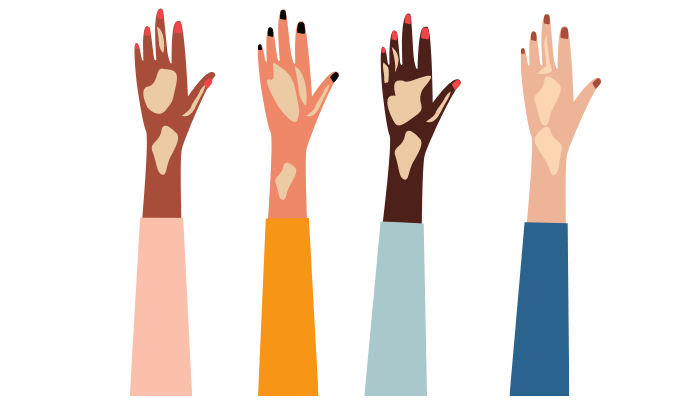Why Diagnostic Stewardship Is Important
An estimated 13 billion lab tests are performed in the U.S. each year. Diagnostic tests are the highest-volume medical activity we experience. And these tests help drive most medical decisions.
Advancing Diagnostic Equity
Algorithms are used to diagnose kidney and lung disease and to determine which method of childbirth is best for expecting mothers. These equations consider various factors, including your age, test results, and race.
How Skin Tone Influences Pulse Oximeter Accuracy
Recent evidence shows that pulse oximeter, a small device that measures oxygen, inaccurately measures low blood oxygen levels in patients with darker skin. Yet, the same device is still used as a standard of care today.
Making EEG Testing More Inclusive for All Hair Types
People with coarse, curly hair are often denied opportunities to participate in neuroscience research that uses electroencephalogram (EEG) testing due to standard electrodes being unable to reach the scalp. What can be done to help?
Moving From Race-Based Corrections to Race-Conscious Medical Care
Medicine’s use of race can have the effect of reinforcing false, disproven ideas of race and biology and relying on racist assumptions. The continued use of eGFR means the kidney function of Black patients may appear better than it is, and patients may not get the treatment they need.
Is Racial Bias in Diagnostic Testing Killing People?
BIPOC patients are endangered in America’s healthcare system. Racially biased diagnostic tests are misdiagnosing BIPOC patients, inaccurately hiding the severity of their health issues. This lethal predicament affects some patients' chances to receive timely care and access to crucial resources.
Eliminating Racial Disparities in Cancer Outcomes
Going through cancer isn’t easy for anyone. However, there are groups with clear racial disparities in cancer outcomes. Here is a look at recent developments and collaborations toward eliminating racial disparities so ALL patients have optimal outcomes.
Words and Actions Matter: A Case Study
Blueprint Medicines collaborated with the Health Equity Emissary Team (HEET) of Diverse Health Hub to produce an in-person internal company-wide event during Core Values week.
Cancer Shame in Marginalized Communities
Cancer shame can impact a variety of people from different circumstances, but it occurs in some patient groups more than others. Here’s a look at cancer shame, how it can impact cancer detection and outcomes, and how patients and healthcare providers can help diminish cancer shame.
What Is Cultural Humility in Cancer Care?
Learning about other cultures is a common concept in the multicultural U.S. Here’s a look at cultural humility, the impact of cultural humility in cancer care, and cultural factors in cancer care.
Clinical Trial Lifelines, Removing Barriers to Increase Diversity in Trials
Diversity in clinical trials benefits everyone in ways that cannot be overlooked. Here’s a look at some of the history that has led to distrust, the importance of clinical trial diversity, creating lifelines for marginalized patients, and helping patients to access tomorrow’s medicine today.
What Are Social Determinants of Health?
Social determinants of health are a reality for many people in the U.S. to navigate in their pursuit of health. Here’s a look at social determinants of health and some solutions that public health organizations and others are working toward.
Is Whole Patient Care a Path to Health Equity?
Rx for Community Wellness focuses on culturally competent whole person healthcare that treats the whole patient in tandem with existing care while also looking at health equity issues.
Progress in Achieving Health Equity Requires Attention to Root Causes
The root causes of health disparities must be examined by individuals, government organizations, and patient advocacy organizations to make real progress toward health equity. Here’s a look at where things stand with health equity and root causes that are being addressed.
Medical Illustrations Working Toward Health Equity
Does my body look normal? What does a dark-skinned baby with jaundice look like? Does skin cancer look different on dark skin? Learn about medical illustration and perception issues and solutions working toward diverse representation for all.
Renal Medullary Carcinoma Patient Profile Part 2
Lamar Valentina shares part two of his RMC patient journey, from being diagnosed shortly before he turned 35 to starting treatment two weeks later.
Renal Medullary Carcinoma Patient Profile Part 1
Lamar Valentina shares his RMC patient journey, from being diagnosed shortly before he turned 35 to starting treatment two weeks later.
What Is a Decentralized Clinical Trial? What BIPOC Patients Should Know
Decentralized clinical trials offer many advantages over traditional clinical trial models, but what are DCTs exactly? Here’s a look at clinical trials and BIPOC patients, DCTs, and what decentralized clinical trials can mean for BIPOC patients.
Improvements in Enhancing Clinical Trial Diversity
Diversity in clinical trials has been a topic of interest at Diverse Health Hub (DHH). Increasing diversity in clinical trials helps investigators to further improve and refine treatments for underrepresented patient groups. Here’s a look at U.S. efforts for improvements in enhancing clinical trial diversity.
Ancestry and the Prevalence of Cancer-Associated Genetic Alterations
What have researchers learned about ancestry and the prevalence of cancer-associated genetic alterations? Here’s a look at some recent findings from the AACR Cancer Disparities Progress Report 2022.



















